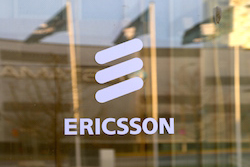Telecom giant Ericsson asked terror group Islamic State for permission to work in Iraq and Syria and to work in an ISIS-controlled city, according to the International Consortium of Investigative Journalists (ICIJ). The comms kit maker then paid protection money to smuggle its equipment through ISIS-held zones on a route known as The Speedway, according to a leaked internal Ericsson investigation.
The report, obtained by the ICIJ, reveals Ericsson paid out tens of millions of dollars in suspicious transactions in Iraq, financing slush funds, trips abroad for Swedish defence officials, payoffs to executives at corporate customers and possibly terrorists.
According to corruption confronting movement Transparency International, in 2021 Sweden was rated as the sixth most honest country in the world in which to do business.
These documents provided the basis of ICIJ’s Ericsson List investigation.
The ICIJ says that it can document how that Ericsson executives dismissed internal recommendations to halt operations in the country after ISIS fighters swept in. ICIJ alleges that Ericsson asked a partner to seek permission from ‘local authority ISIS’ to continue to work in the terrorist-controlled city of Mosul. Subsequently an unvetted transport contractor paid protection money to militias to avoid Iraqi government customs taxes by hauling Ericsson equipment through ISIS-controlled areas.
This particular ‘deployment’ was kept hidden from the public by Ericsson until ICIJ and its media partners approached the company with questions about them in recent weeks.
After obtaining the documents, the non-profit network of journalists that comprises ICIJ shared them with 111 journalists from 30 media partners in 22 countries.
Journalists interviewed a former Ericsson contractor kidnapped by ISIS, former employees of Ericsson, government officials, contractors and other industry insiders in Iraq, the United Kingdom, the United States, Jordan, Lebanon and elsewhere.
These documents show Ericsson conducting internal investigations of alleged corrupt practices in 15 countries, including Iraq. In 2019, Ericsson agreed to pay $1 billion to settle a US case, one of the largest financial penalties ever for corporate fraud. The settlement does not mention Iraq or the other internal investigations.
The Ericsson List published by ICIJ documents reveal a business model in Iraq that relied on politically connected contractors and fixers to ‘do the dirty work’ of maintaining operations, ICIJ said. This is an approach that government investigations also have exposed as conducive to fraud and other corruption. “The documents show a pattern of bribery and corruption so widespread, and company oversight so weak, that millions of dollars in Ericsson payments couldn’t be accounted for,” said the ICIJ report.



